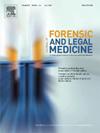Something to see here: ACT Police referrals for impaired driving due to medical conditions
IF 1.2
4区 医学
Q3 MEDICINE, LEGAL
引用次数: 0
Abstract
Introduction
Medical conditions may cause driving impairment and preventable motor vehicle collisions. Australian Capital Territory (ACT) Police detect potentially medically impaired drivers as part of their duties. ACT Police and medical fitness to drive reviewers sought to determine the accuracy of police suspicion of medically impaired drivers for quality assurance and legislative purposes.
Method
This is a retrospective study of 110 drivers who were referred to the Fitness to Drive Medical Clinic (FTDMC) by ACT Police between July 1, 2017 and June 30, 2023 to determine whether changes to driver licences were needed.
Results
Reasons for ACT Police referral were physical, cognitive, mental health and non-acute substance use conditions. All drivers referred to the FTDMC by ACT Police had their licence conditions modified by cancellation, suspension, the imposition of conditions or a requirement to undertake an on-road assessment by an occupational therapist trained to assess drivers.
Conclusions
This study demonstrates that ACT Police detection of medically impaired drivers, police triage and referral to the FTDMC is effective. We believe that ACT Police referrals to the FTDMC should result in immediate suspension of a driver's licence prior to review by a medical practitioner experienced in fitness to drive assessments. The ACT Police process must include review by the Sergeant of the Major Collision Team and be supported by appropriate legislation.
这里要看的是:澳大利亚首都领地警方因健康状况导致的酒后驾驶转诊。
医学状况可能导致驾驶障碍和可预防的机动车碰撞。澳大利亚首都地区(ACT)警察的职责之一是检测可能有医疗缺陷的司机。澳大利亚首都直辖地区警察和医疗健康状况审查人员为保证质量和立法目的,试图确定警方怀疑医疗残疾司机的准确性。方法:这是一项回顾性研究,对2017年7月1日至2023年6月30日期间由ACT警方转介到健身驾驶医疗诊所(FTDMC)的110名司机进行研究,以确定是否需要更改驾驶执照。结果:首都地区警察转诊的原因包括身体、认知、心理健康和非急性药物使用状况。所有被澳大利亚首都领地警方转介给FTDMC的司机,他们的执照条件都被取消、暂停、施加条件或要求由受过培训的职业治疗师进行道路评估。结论:本研究表明,澳大利亚首都地区警察发现医疗缺陷司机,警察分类和转介到FTDMC是有效的。我们认为,澳大利亚首都领地警方将其转介给FTDMC,应立即吊销驾驶执照,然后由在健身驾驶评估方面经验丰富的医生进行审查。澳大利亚首都地区警察程序必须包括重大碰撞小组警长的审查,并得到适当立法的支持。
本文章由计算机程序翻译,如有差异,请以英文原文为准。
求助全文
约1分钟内获得全文
求助全文
来源期刊

Journal of forensic and legal medicine
MEDICINE, LEGAL-
CiteScore
2.70
自引率
6.70%
发文量
106
审稿时长
57 days
期刊介绍:
The Journal of Forensic and Legal Medicine publishes topical articles on aspects of forensic and legal medicine. Specifically the Journal supports research that explores the medical principles of care and forensic assessment of individuals, whether adult or child, in contact with the judicial system. It is a fully peer-review hybrid journal with a broad international perspective.
The Journal accepts submissions of original research, review articles, and pertinent case studies, editorials, and commentaries in relevant areas of Forensic and Legal Medicine, Context of Practice, and Education and Training.
The Journal adheres to strict publication ethical guidelines, and actively supports a culture of inclusive and representative publication.
 求助内容:
求助内容: 应助结果提醒方式:
应助结果提醒方式:


